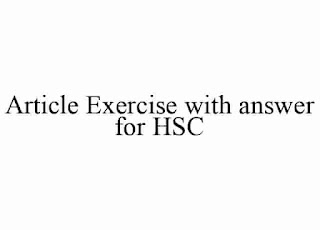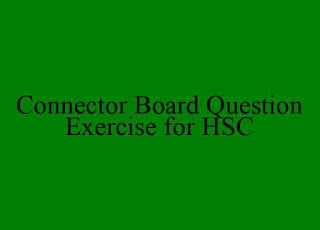Importance of reading Newspaper composition
Newspaper is a kind of printed media usually distributed weekly or daily in the form of a folded book of papers containing news of current events, informative articles, education, editorials, and advertising. The newspapers keep us in touch with the current world affairs.
Without them we cannot know the important news even of the remotest part of the world. It acts as a mirror that reflects the views and opinions of the public and the Government. There are many advantages of reading the newspapers. In short newspaper plays a vital role in our life.
With the spread of education, the popularity and importance of newspapers have increased by leaps and bounds. Everybody today wants to read a newspaper. They give us lots of information about various matters at various levels that are not available anywhere. People of all profession need newspapers.
Engineers, doctors, scientists, professors and other professionals need them to know the day-to-day developments in their respective fields. Businessmen need newspapers to keep in touch with the economic and commercial trends in the country and see current share prices. Politicians need them to read recent political events in the country. Others read newspapers to know how changes around them affect their life.
Newspapers have their educative value also. Newspapers are living textbooks. Newspapers develop reading, math, social studies and language skills. Students read newspapers to broaden their knowledge and keep abreast of the recent developments in various fields like politics, economics, science, sports or art and culture. It is undoubtedly an important tool of the learning process for students.
Lovers of Radio and the Cinema can look up in them the daily programs of these entertainments. The advertisements help the people to buy things. The unemployed can look up the wanted columns for vacant job. Newspapers are also an important means of advertisement. They help trade and commerce.
But the newspapers have some drawbacks also. They serve as a means of propaganda for the various political parties. Sometimes, news is even twisted and distorted. Often views and comments are expressed through them that confuse the people and misguide them. At other times, they stir up class hatred. They sow seeds of communal quarrels. Often they publish wrong advertisements which deceive and cheat the people.
But these disadvantages are nothing in comparison with their manifold advantages. They are really of great use for the people. By reading them we come to know of the probable problems one can face while dealing with a particular organization. So people should be encouraged in every way. On the whole, the habit of reading newspapers is a good one.
It is an aid to social reform and educational advancement. All novel efforts at social reforms can first discussed and debated in the press before any decision is arrived at and final action launched. It can also reach those who do not indulge in extensive reading because of lack of means and even those with limited leisure.
Thus, it is a tool for the eradication of corruption of society depending on the persons manning it and because of this need to be in safe hands.
Benefit of Reading Newspaper
The power of the press is really un-disputed. In this modern age, the press is so strong and effective that it is called the Fourth Estate. Newspapers live Times if India, States-man and magazines like outlook and India Today have wide circulation in India. They have the power to draw the attention of those who matter, to the shortcomings in their decisions and its results.
With the spread of education, the influence of the Press has also grown in our country and in advanced countries, it is capable of making or breaking governments. In U.K. Japan or U.S.A. there is hardly a person who does not subscribe to a newspaper and consequently they are better informed and more updated with the affairs of their nation and the world.
India with a comparatively lesser literacy populace, specially in rural areas of States live Uttar Pradesh, Bihar, Madhya Pradesh, etc. are at a disadvantage. Because of the lesser influence the Press has on the masses, the advantages of democracy and the power to elect their own representatives are lost on them.
We achieved independence through the basics of mass movements, organised by the political parties, through the medium of newspapers. It was only when a few Indians learnt the English language and got to know of the revolutions in other countries, that they got the idea of freeing themselves from the shackles of slavery. This knowledge was largely contributed by newspapers of the foreign Press which were fearless in depicting the truth.
The Press has the power thus to mould public opinion. It has become the medium of political agitations and movements in our country and the organ of political leaders and parties. It is also the voice of the public, forcing the Government to listen with respect, to its opinions and views.
he elections, after the Emergency imposed by Indira Gandhi, gave a negative vote against her, for suppression of the ‘Freedom of Press’. The downfall of President Richard Nixon of U.S.A. due to Watergate was actually fuelled by Press reports of the break-in.
Thus, we find the Press placed as one of the ‘Goliaths’ of present age and if utilizes for the good of the people, it can wield tremendous power. However, there is the other side of the coin too.
There are several owners and even Editors, controlling the Press, who try to take advantage of his extreme power. Power does corrupt if un-checked and those controlling the Press must be vigilant and always on guard lest they corrupt society and make it their imp to solely earn money. It cannot be denied that there are those who hold be acting as sentinels for society but are actually in the profession to arm-twist, black-mail and, literally take advantage of their own position for selfish material gains.
A clean and independent Press, fearless as they should be, can be a blessing. It is the ‘great sentinel of the State’, ‘the ground detector of public imposture’.



